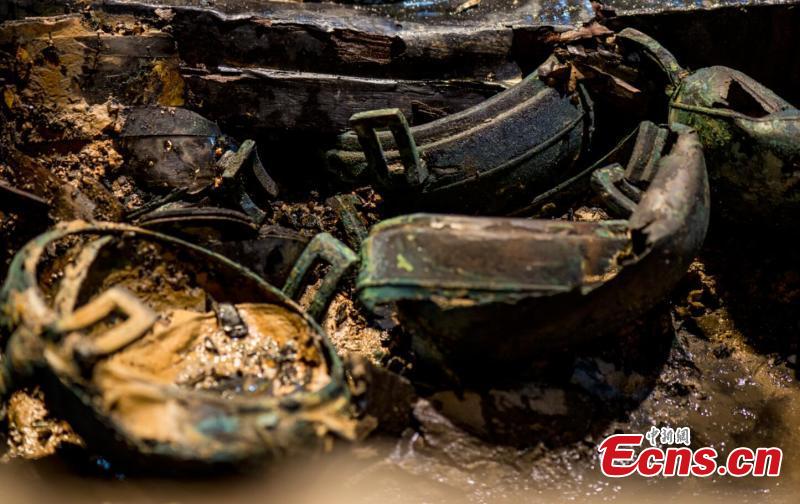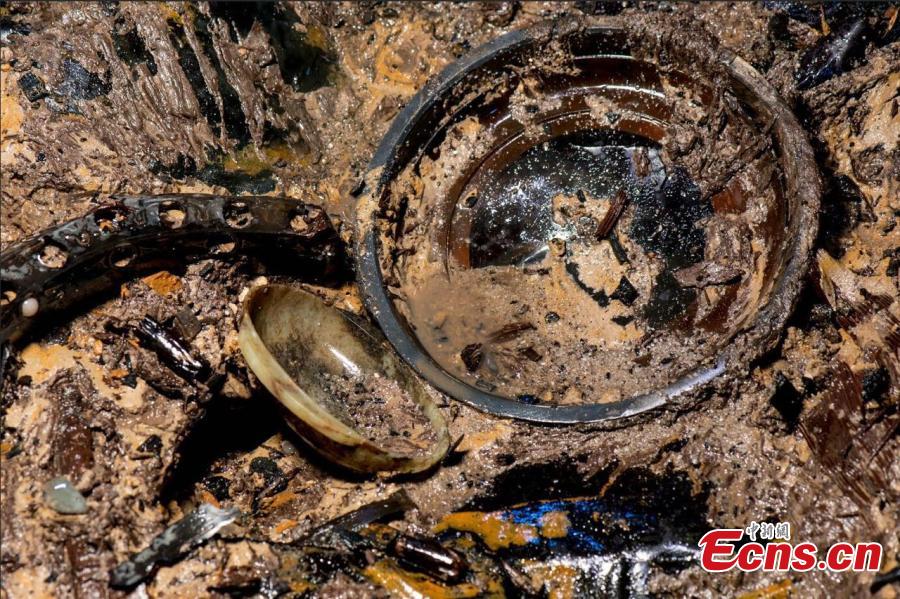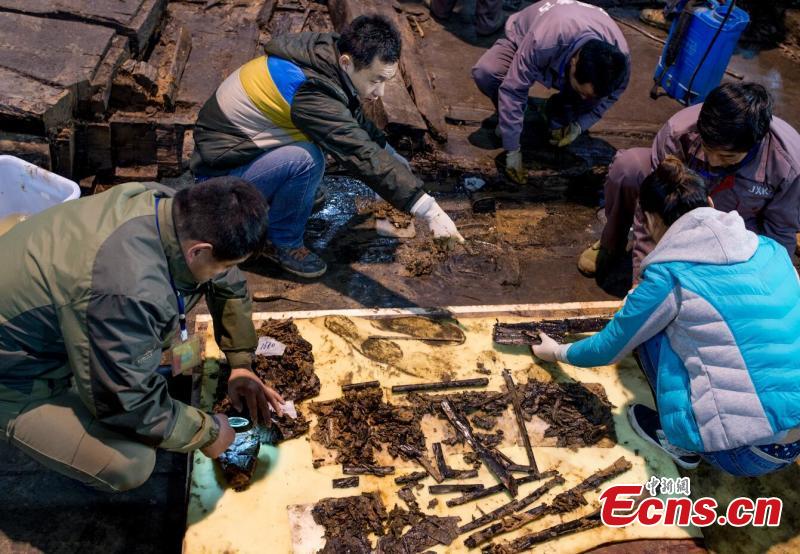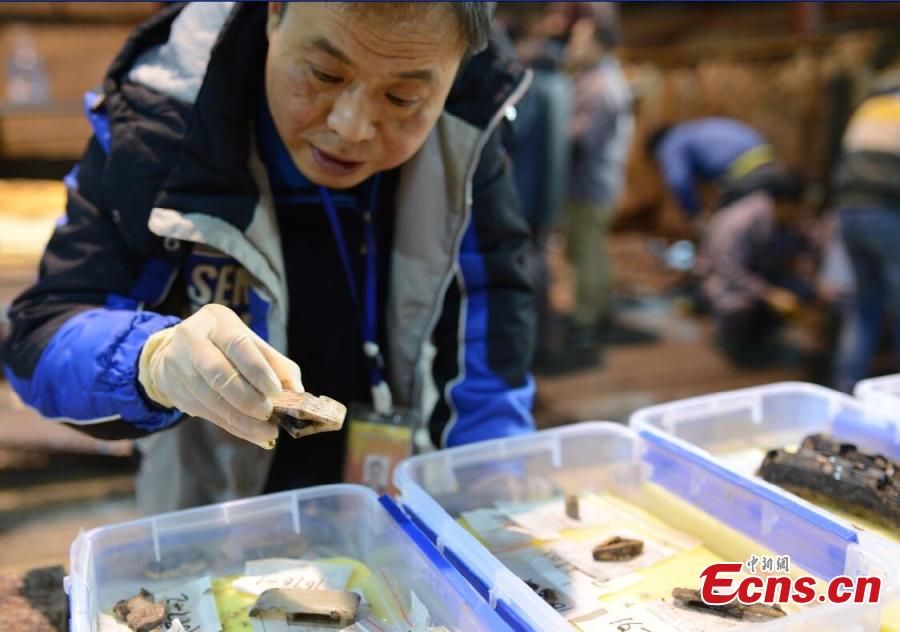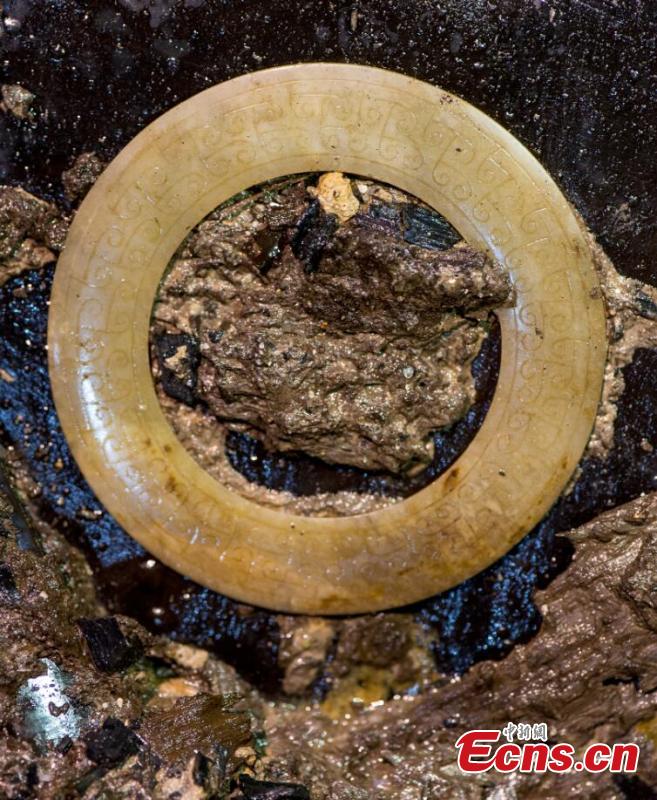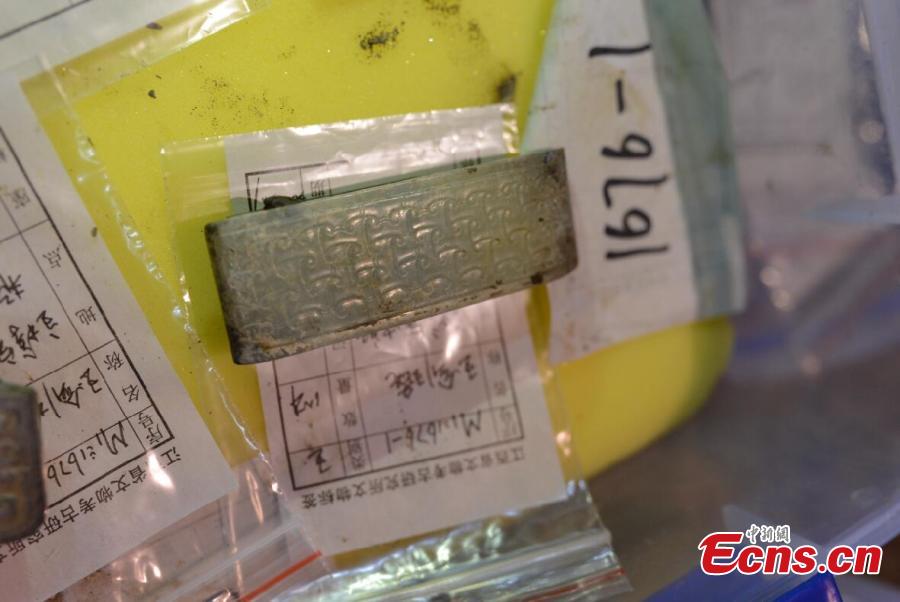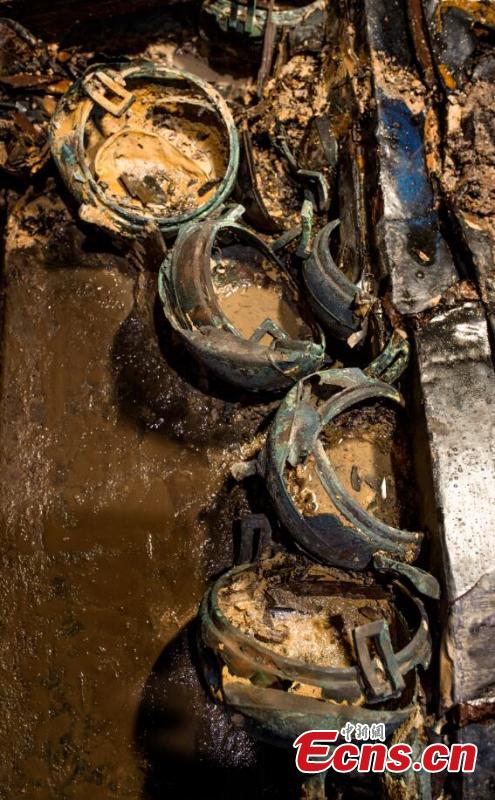
The photo shows “nine ding”, or ancient cauldrons found during the excavation into the tomb of "Haihunhou" (Marquis of Haihun) in Nanchang, East China's Jiangxi province. The number nine was only used by Chinese emperors in early feudal times, and it is common for tombs of emperors to be called 'nine-ding tombs', according to archaeologists. Archaeologists believe the tomb belongs to Liu He, grandson of Emperor Wu. He was given the title "Haihunhou" after he was deposed as emperor after only 27 days. Haihun is the ancient name of a very small kingdom in the north of Jiangxi. (Photo: China News Service/ Guo Jing)






